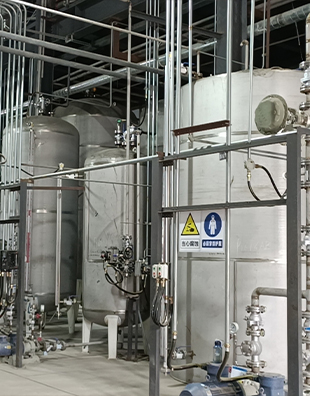scale inhibitor water treatment
Scale Inhibitor Water Treatment An Overview
Water is one of the most essential resources on our planet, and its treatment is crucial for various industrial processes, agriculture, and even domestic uses. One of the significant challenges faced in water treatment is the formation of scale—deposits that accumulate on surfaces due to the precipitation of minerals. Scale formation can lead to reduced efficiency, increased energy consumption, and costly maintenance. To combat this issue, scale inhibitors have emerged as an effective solution.
Understanding Scale Formation
Scale primarily consists of minerals such as calcium carbonate, magnesium sulfate, and other compounds that precipitate out of solution as water is heated or subjected to evaporation. Industries that rely heavily on water systems, such as power generation, oil and gas, and manufacturing, often face the brunt of scale accumulation. As water is heated or concentrated, the solubility limits of these minerals are exceeded, resulting in unwanted deposits that can obstruct equipment and reduce operational efficiency.
The presence of scale in cooling towers, boilers, and heat exchangers can lead to serious operational problems. For example, scale buildup can restrict water flow, increase the risk of overheating, and ultimately result in equipment failure. Hence, it is vital to implement measures to control and inhibit scale formation effectively.
What Are Scale Inhibitors?
Scale inhibitors are chemical compounds designed to prevent or mitigate scale formation in water systems. They work by interfering with the crystallization process of scaling minerals, thus keeping them in a suspended form within the water, rather than allowing them to precipitate and form solid deposits. There are different types of scale inhibitors, including
1. Phosphonates These are widely used due to their effectiveness in controlling calcium carbonate and calcium sulfate scales. They function by modifying the crystal growth of scale-forming minerals.
2. Polyacrylic Acids These polymers are effective at sequestering calcium ions and preventing scale formation by disrupting the crystallization process.
scale inhibitor water treatment

3. Sulfonated Polymers They offer broad-spectrum inhibition and help in controlling various types of scales in both industrial and municipal applications.
The choice of a suitable scale inhibitor depends on factors such as water chemistry, temperature, and the specific scaling compounds involved.
Applications of Scale Inhibitors
1. Cooling Towers One of the most common applications for scale inhibitors is in cooling water systems. In cooling towers, the constant evaporation of water increases the concentration of minerals, which can lead to scale formation. The addition of scale inhibitors helps maintain system efficiency and reduce maintenance costs.
2. Boilers In steam boilers, scale formation can lead to overheating and operational issues. Scale inhibitors are essential in ensuring that the heat transfer surfaces remain clean and operationally efficient.
3. Oil and Gas Industry Scale inhibitors are critical in the oil and gas sector, where water is used for hydraulic fracturing and other processes. Here, they help to minimize scale deposition in pipelines and equipment, ensuring smooth operations and safety.
4. Desalination Plants The desalinization process often encounters scaling issues due to the high concentration of minerals in seawater. The use of scale inhibitors is critical in these settings to ensure optimal performance and prolong equipment life.
Conclusion
Scale inhibitors are an integral part of water treatment strategies aimed at enhancing system efficiency and minimizing maintenance costs. By preventing scale formation, industries can ensure smooth operation, reduce energy consumption, and extend the lifespan of critical equipment. As water scarcity continues to pose a global challenge, the effective use of scale inhibitors will play a vital role in sustainably managing this precious resource. As technology and research in this field progress, the development of more effective and environmentally friendly scale inhibitors is anticipated, paving the way for more efficient water treatment processes across various sectors.
-
LK-319 Special Scale And Corrosion Inhibitor For Steel Plants: Advanced Solutions for Industrial Water SystemsNewsAug.22,2025
-
Flocculant Water Treatment: Essential Chemical Solutions for Purification ProcessesNewsAug.22,2025
-
Isothiazolinones: Versatile Microbial Control Agents for Industrial and Consumer ApplicationsNewsAug.22,2025
-
Scale Inhibitor: Key Solutions for Water System Scale PreventionNewsAug.22,2025
-
Organophosphonates: Versatile Scale Inhibitors for Industrial Water SystemsNewsAug.22,2025
-
Scale and Corrosion Inhibitor: Essential Chemical Solutions for Water System MaintenanceNewsAug.22,2025





